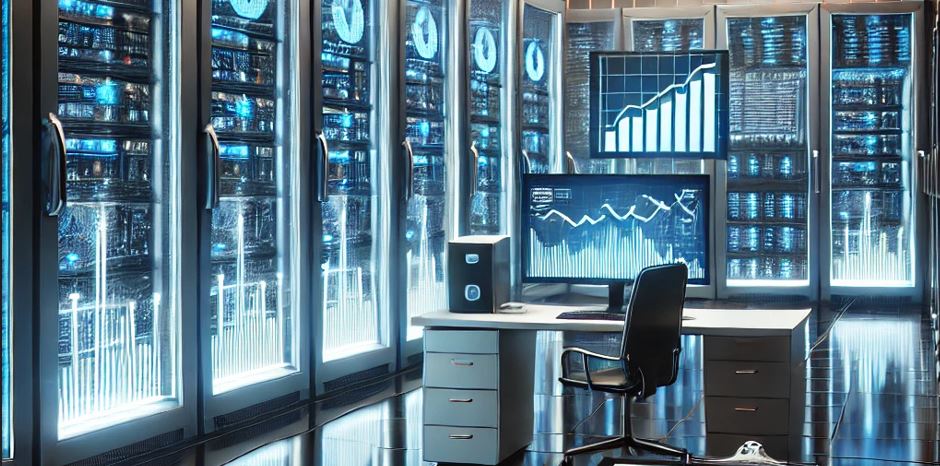Convergence of Tech and Sustainability: A New Procurement Paradigm
As technology and environmental responsibility converge, sustainable hardware procurement has become a necessity for progressive organisations. This approach transcends traditional procurement methods, integrating environmental responsibility with technological innovation and business goals.
The Evolving Landscape of Sustainable IT
Environmental Challenges in IT Hardware
The IT industry faces significant environmental challenges:
- Exponential E-Waste Growth: Electronic waste represents the fastest-growing waste stream globally, driven by rapid technological obsolescence.
- Resource Intensive Production: Manufacturing IT hardware consumes substantial raw materials, energy, and water.
- Carbon Emission Concerns: Data centres and IT operations contribute significantly to global carbon emissions.
Significance of Sustainable Procurement
Sustainable hardware procurement is no longer a peripheral consideration but a core strategic function that:
- Reduces environmental impact
- Drives operational efficiency
- Enhances organisational reputation
- Ensures regulatory compliance
- Delivers long-term financial benefits
Key Strategic Drivers
Environmental Responsibility
Organisations are increasingly recognising their role in environmental stewardship. Sustainable hardware procurement allows businesses to:
- Minimise ecological footprint
- Reduce greenhouse gas emissions
- Conserve natural resources
- Promote circular economy principles
Regulatory Compliance
Evolving environmental regulations compel organisations to:
- Adhere to Extended Producer Responsibility (EPR) schemes
- Implement mandatory carbon footprint reporting
- Obtain energy efficiency certifications
- Demonstrate transparent environmental practices
Competitive Advantage
Sustainability has become a critical differentiator:
- Attracts environmentally conscious consumers
- Appeals to investors prioritising Environmental, Social, and Governance (ESG) factors
- Differentiates organisations in competitive tender processes
- Signals technological leadership and forward-thinking management
Strategic Framework for Sustainable Procurement
Comprehensive Lifecycle Approach
Effective sustainable hardware procurement requires a clear perspective encompassing:
- Acquisition Phase
- Select devices with minimal environmental impact
- Avoid over-provisioning
- Prioritise modular, upgradeable designs
- Usage Phase
- Implement energy-efficient power management
- Conduct regular maintenance
- Optimise device performance
- End-of-Life Phase
- Secure data erasure
- Partner with certified recyclers
- Explore equipment donation or resale opportunities
Vendor Selection Criteria
Develop a robust vendor assessment framework considering:
- Environmental management systems
- Carbon emission reporting
- Renewable energy usage
- Waste reduction initiatives
- Supply chain transparency
Performance Measurement
Track key performance indicators (KPIs) to evaluate sustainability efforts:
- Energy consumption per device
- Average hardware lifespan
- E-waste reduction
- Cost savings from sustainable practices
- Return on investment for green initiatives
Technological Enablers
Emerging technologies support sustainable procurement:
- Sustainability Management Software: Track environmental metrics
- IoT-Enabled Energy Monitoring: Real-time device efficiency tracking
- AI Optimisation Tools: Predictive maintenance and performance enhancement
- Blockchain: Supply chain transparency and accountability
Challenges and Mitigation Strategies
Potential Obstacles
- Higher upfront investment costs
- Technological integration complexities
- Skill gaps in sustainable procurement
- Organisational change resistance
Mitigation Approaches
- Develop comprehensive financial models demonstrating long-term savings
- Invest in staff training and change management
- Create clear implementation roadmaps
- Foster cross-departmental collaboration
Conclusion
Sustainable hardware procurement represents a huge opportunity for organisations to align technological advancement with environmental responsibility. By adopting a forward-thinking approach, businesses can reduce their ecological impact, drive operational efficiency, and position themselves as responsible technological leaders.
The future of IT procurement is inherently sustainable—organisations that recognise and act on this will be best positioned to thrive in an increasingly resource-conscious world.




